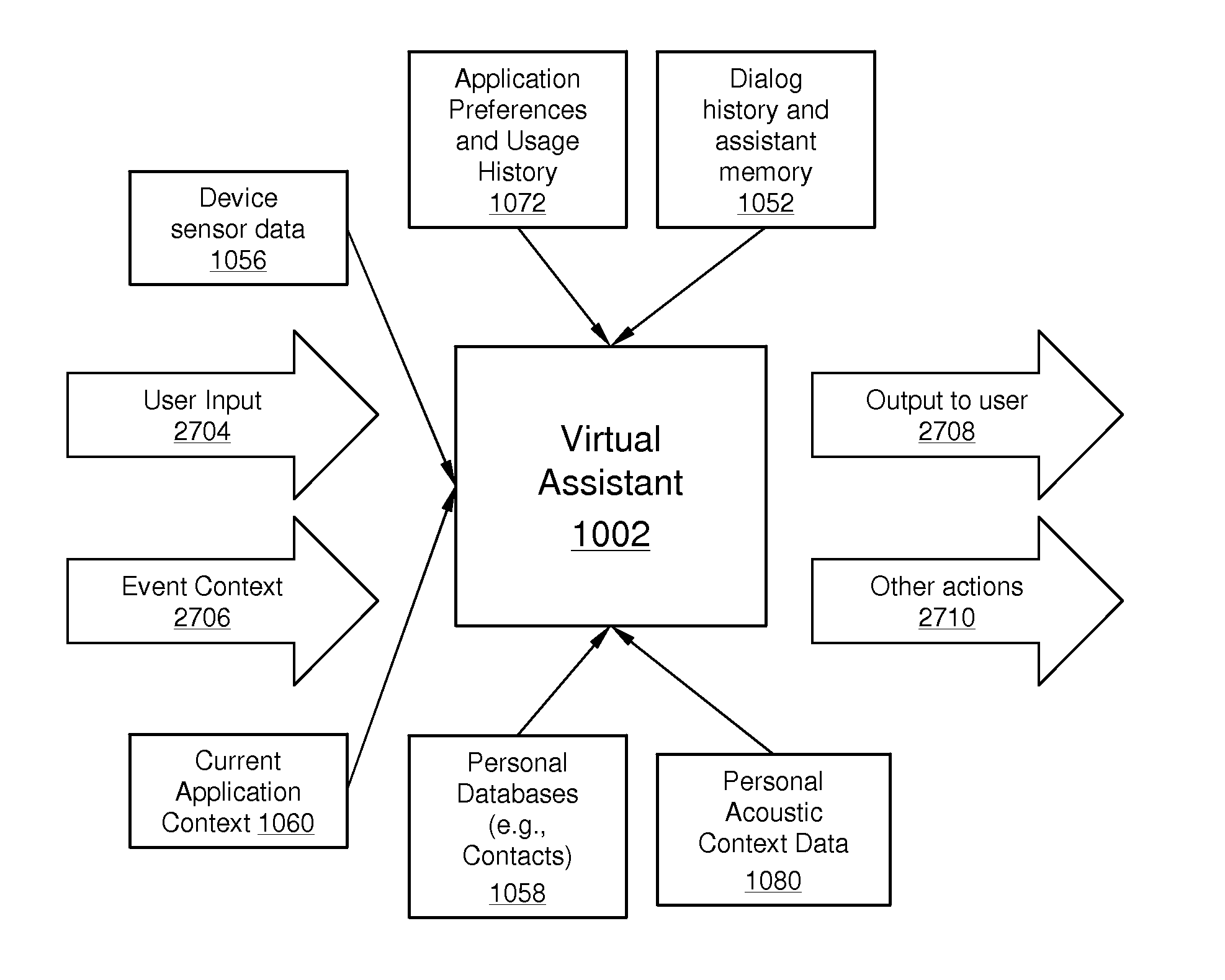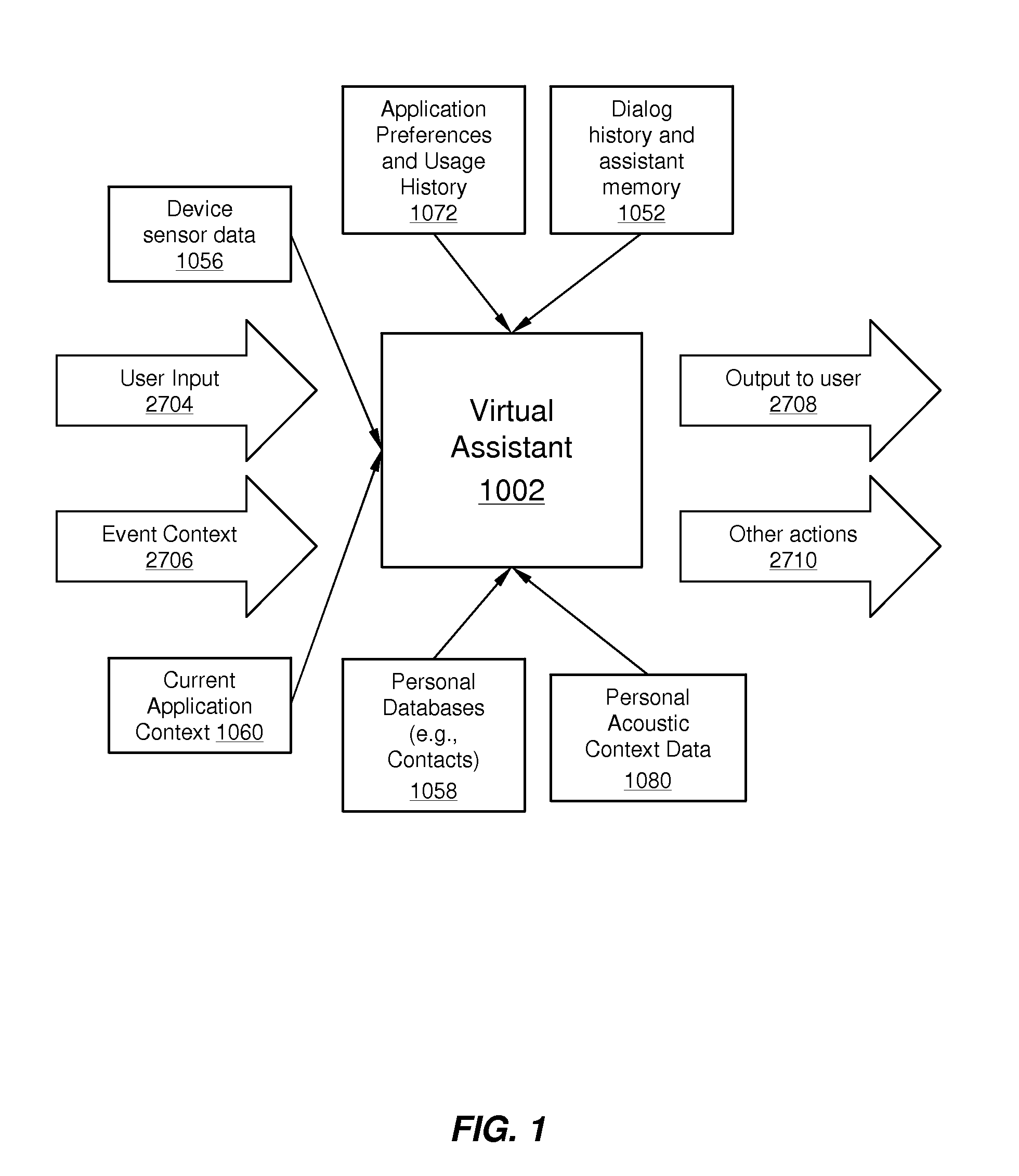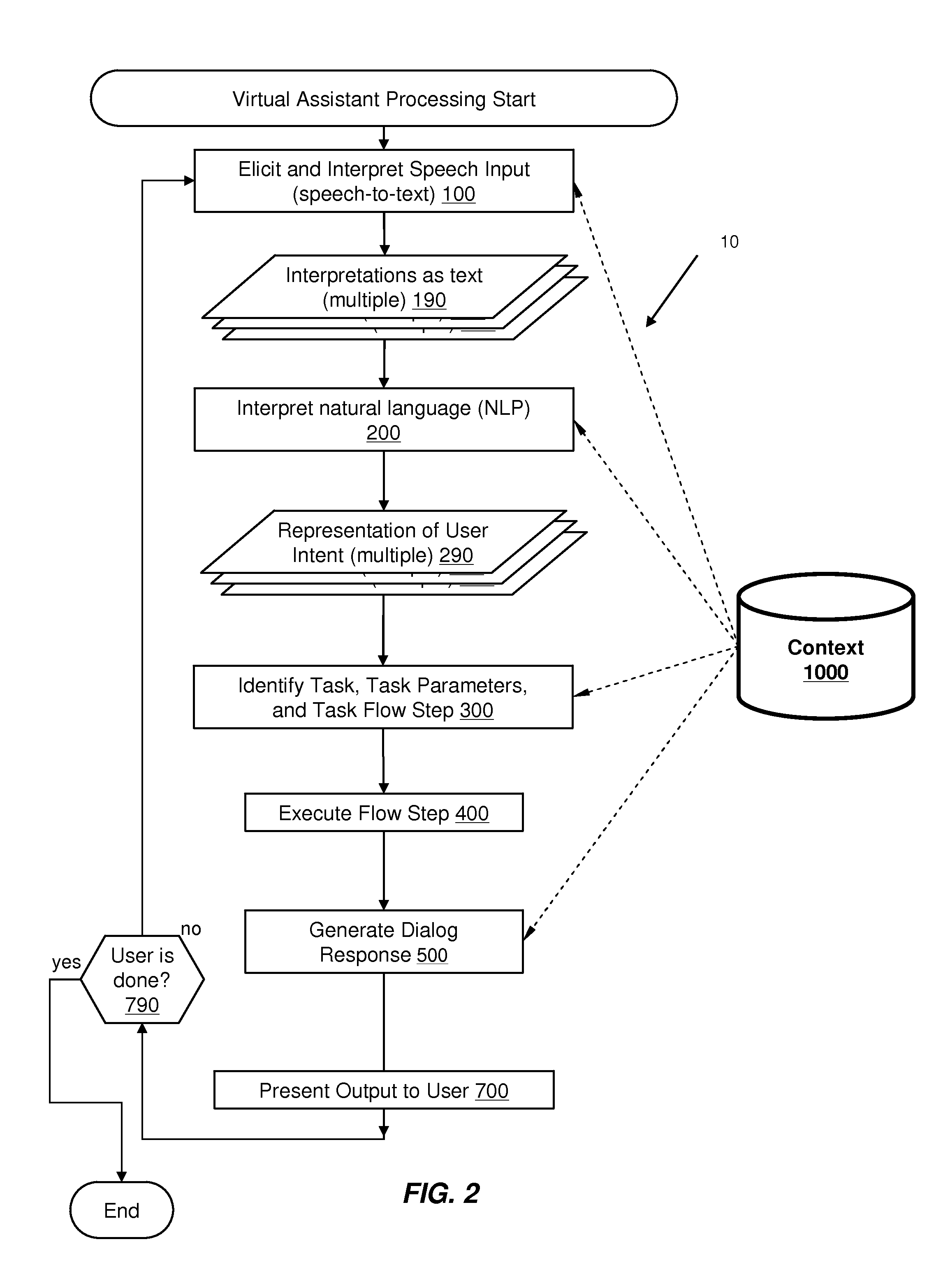Using Context Information To Facilitate Processing Of Commands In A Virtual Assistant
a virtual assistant and context information technology, applied in the field of virtual assistants, can solve the problems of user frustration or overwhelm, many users may have difficulty even discovering what functionality and/or information is available on their electronic devices, and achieve the effect of reducing the number of candidate interpretations and facilitating user learning
- Summary
- Abstract
- Description
- Claims
- Application Information
AI Technical Summary
Benefits of technology
Problems solved by technology
Method used
Image
Examples
Embodiment Construction
[0052]According to various embodiments of the present invention, a variety of contextual information is acquired and applied to perform information processing functions in support of the operations of a virtual assistant. For purposes of the description, the term “virtual assistant” is equivalent to the term “intelligent automated assistant”, both referring to any information processing system that performs one or more of the functions of:[0053]interpreting human language input, in spoken and / or text form;[0054]operationalizing a representation of user intent into a form that can be executed, such as a representation of a task with steps and / or parameters;[0055]executing task representations, by invoking programs, methods, services, APIs, or the like; and[0056]generating output responses to the user in language and / or graphical form.
[0057]An example of such a virtual assistant is described in related U.S. Utility application Ser. No. 12 / 987,982 for “Intelligent Automated Assistant”,...
PUM
 Login to View More
Login to View More Abstract
Description
Claims
Application Information
 Login to View More
Login to View More - R&D
- Intellectual Property
- Life Sciences
- Materials
- Tech Scout
- Unparalleled Data Quality
- Higher Quality Content
- 60% Fewer Hallucinations
Browse by: Latest US Patents, China's latest patents, Technical Efficacy Thesaurus, Application Domain, Technology Topic, Popular Technical Reports.
© 2025 PatSnap. All rights reserved.Legal|Privacy policy|Modern Slavery Act Transparency Statement|Sitemap|About US| Contact US: help@patsnap.com



